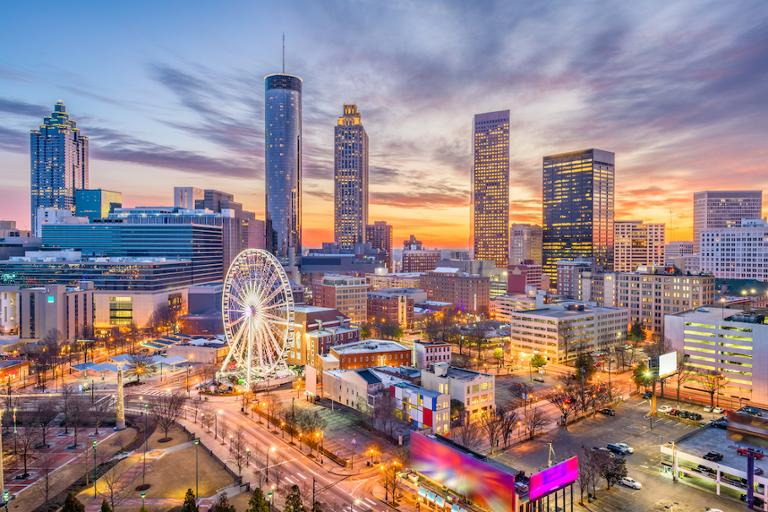Can we start calling Atlanta the next big tech hub? The southern metropolis continues its run as a hub of intense technology job demand, outpacing even San Francisco and Silicon Valley.
That data comes from Burning Glass, which collects and analyzes millions of job postings from across the country. Based on data from the past 90 days, it’s clear that cities across the country enjoy burgeoning tech scenes, including New York City, Austin, Dallas, Chicago, and the aforementioned Atlanta. Check out the chart:
Like the other major tech hubs on this list, Atlanta benefits from a handful of powerful factors, including a well-established business scene and a sizable talent pipeline (the latter courtesy of its local schools and universities). Most tech hubs also profit from a virtuous cycle of sorts—the rise of local tech companies tends to attract more technologists and investment, which in turn leads to more tech companies deciding to call the area home.
Over the past several years, developers have also done their best to make Atlanta more tech-friendly. Back in 2017, for instance, the city’s oldest standing skyscraper was dubbed “FlatironCity” and renovated with features designed to appeal to hip, young tech companies, including on-site bike storage and weekly events such as yoga. Around that time, local incubators sprung up around town, designed to help startups and entrepreneurs scale up their businesses. The current rise in tech-job demand suggests those long-term efforts are paying off in a big way.
Other, smaller cities such as Raleigh, NC and Tampa, FL have spent years engaged in similar efforts, with varying degrees of success. But growing and maintaining a local tech ecosystem takes a lot of work, as well as sustained collaboration on the part of government officials, local businesses, and schools. Not every city succeeds; but for more and more metro areas across the country, the appearance of a local tech scene is translating into a more dynamic economy.



